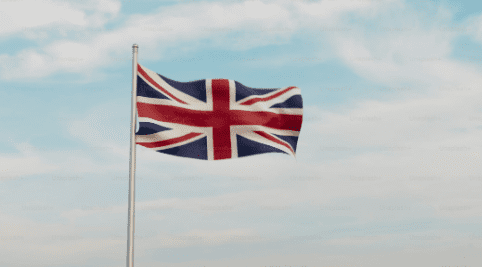The UK is making big strides in its economic growth, says the Organisation for Economic Cooperation and Development (OECD). According to their latest report, Britain is now growing faster than some of the biggest players like Japan, Italy, and Germany. That’s a pretty big deal! But there’s more to this story – the UK is also expected to have the highest inflation in the G7 group of advanced countries. So, while there’s good news, there’s a bit of a twist.
UK Moves Up the Ranks
The OECD is one of the most trusted organizations when it comes to analyzing the world’s economy. Every year, they take a close look at how different countries are performing and predict what might happen next. For the UK, this year’s forecast brings both cheers and challenges.
The report shows that the UK will grow at a rate of 1.1% this year, which is much higher than the 0.4% predicted back in May. It’s a surprising jump, especially since the country had just come out of a mild recession last year. This puts the UK on the same level as countries like Canada and France. And who’s the fastest-growing in the G7 group? The US! The UK comes in second, tied with those two countries.

Inflation Still a Worry
While the growth news is good, the UK still faces high inflation. Inflation is when the prices of things go up, meaning your money doesn’t stretch as far as it used to. In August, inflation was at 2.2%, but it’s expected to rise to 2.7% across the whole of 2024. That means everyday items like food, clothes, and even rent could get more expensive. And it’s not just a short-term issue – the OECD predicts that inflation will remain at 2.4% even in 2025.
So, while the UK’s economy is growing, people might still feel the pinch when it comes to their wallets.
A Turnaround in Tough Times
The OECD’s latest outlook is pretty positive overall. They believe the global economy is “turning a corner,” which means things are getting better for most countries after the shocks of recent years. From the COVID-19 pandemic to the war in Ukraine, economies around the world have faced huge challenges. Now, with inflation dropping and central banks lowering interest rates, the world is slowly getting back on track.
For the UK, this turnaround has been stronger than expected. Back in May, the OECD thought that low consumer spending and weak business investments would hold the UK back. But something surprising happened – consumer spending shot up! This is partly due to rising wages and inflation that didn’t climb as high as many feared.
According to Álvaro Pereira, the OECD’s chief economist, the UK’s recovery earlier in the year was stronger than they had predicted. He admitted that they had been quite pessimistic about the UK’s prospects before. But now, with more people spending money and businesses slowly recovering, the outlook is much brighter.
Challenges Still Ahead
Even though things are looking up, there are still some tough challenges ahead. One of the big problems is debt. The UK, like many other European countries, needs to keep its debt under control. Pereira mentioned that while austerity measures (which are strict cuts to government spending) shouldn’t be too harsh, the government still needs to be smart about its finances.
Why does debt matter so much? Well, the bigger a country’s debt, the more it has to pay in interest. And with interest rates still relatively high, this could mean less money available for important things like healthcare, education, and boosting economic growth.
Global Trade is Picking Up
On the global stage, trade is finally starting to return to pre-pandemic levels. This is a huge relief for many countries that rely on importing and exporting goods. Shipping firms, for example, have found new ways to avoid the Red Sea, where there were delays, making trade move more smoothly.
However, it’s not all smooth sailing just yet. Some Asian ports are struggling to keep up with the increased demand, and this has caused shipping costs to rise by a whopping 160% since last year. That’s a massive jump!

Food prices also remain high across the world, and this hits people with lower incomes the hardest. While some countries are managing better than others, Germany, in particular, has been hit hard by rising food costs. Since 2019, food prices in Germany have risen by 16%, which is a lot compared to how much wages have grown. In contrast, countries like Australia and the UK have seen wage growth that slightly outpaces these price hikes.
The Bigger Picture
Looking at the bigger picture, the OECD is concerned about how governments are managing their spending. Many countries, including the UK, might try to cover their budget deficits by borrowing more money. But with high interest rates, this could be a costly solution.
Pereira warned that the more debt a country takes on, the more it will have to spend just to cover interest payments. This could mean less money for vital public services, like healthcare and education. It’s a delicate balancing act that governments need to handle carefully.








